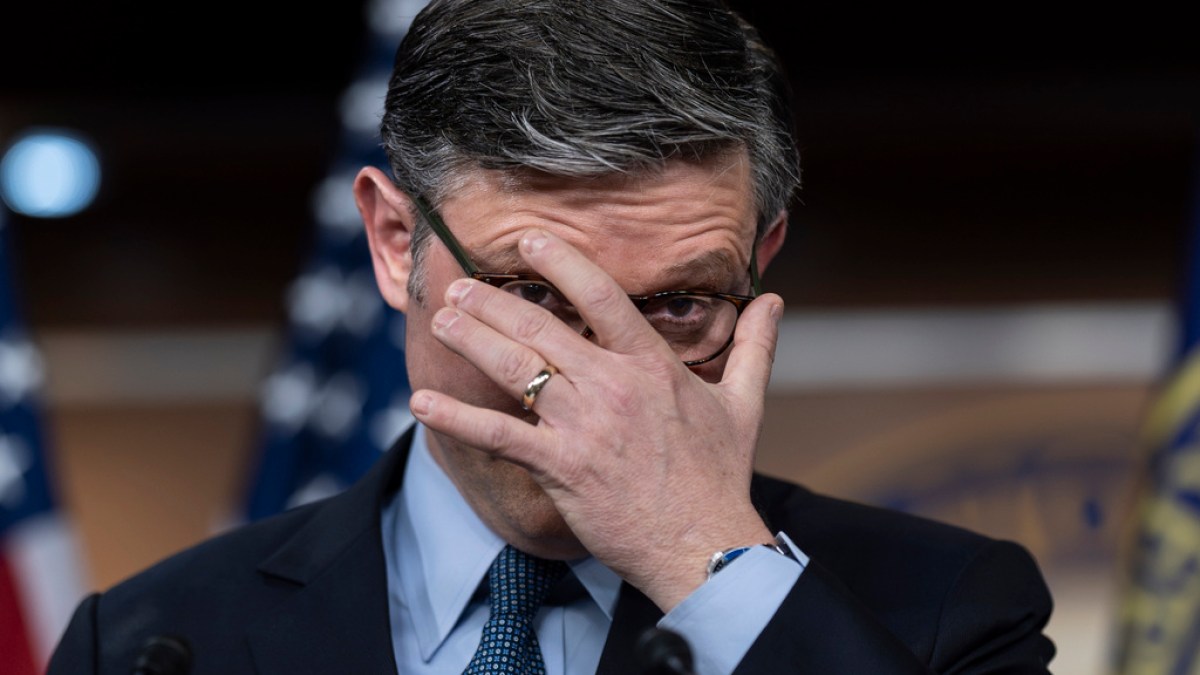The United States Congress has until Friday at midnight to pass a bill raising the country’s borrowing limit, also known as the debt ceiling, without which large sections of the government could stop operating.
A bill that would have extended the deadline until March 14, prepared by both Democrats and Republicans, was scuttled after President-elect Donald Trump announced his opposition on Wednesday, following an effort by billionaire ally Elon Musk to raise opposition.
A Trump-endorsed Republican spending bill that would have tied an extension of government funding to a two-year suspension of the federal debt limit failed to pass the US House of Representatives on Thursday evening, leaving the impasse unresolved.
What is the debt ceiling, why is it so contentious, and what can this latest episode tell us about Musk and his growing influence in US politics?
What is the debt ceiling?
The debt ceiling is a cap imposed by the US Congress on how much money the government can borrow to cover the gap between its revenue and spending.
How often is the debt ceiling raised?
The US has raised the debt ceiling 103 times since 1939, and it has been a largely procedural act in US politics for most of that time.
Failure to raise the debt ceiling means that the US Treasury could have trouble making payments related to the nation’s debt, which could rattle global financial markets and harm the country’s vaunted credit rating.
When did the debt ceiling become so controversial?
In 1995 and 1996, a Republican-controlled Congress, led by the more adversarial House of Representatives Speaker Newt Gingrich, used the prospect of allowing the debt ceiling to expire to push for additional spending cuts from then-president Bill Clinton.
While often pitched as a principled stand for fiscal rectitude, debt ceiling negotiations have become a political opportunity for parties – often in the minority – to use their leverage to extract concessions from the rival party or the president. They can also become occasions where rival factions within a party battle over priorities.
One such standoff took place between in December 2018 and January 2019, during Trump’s first term in office, when the Republican tanked a COVID-19 relief bill by insisting on provisions for more aggressive anti-immigration measures.
That shutdown became the longest in US history and was widely seen as politically damaging for Trump and the Republicans.
What role is Trump playing in the current talks?
The president-elect wields substantial influence over the conservative Republican Party, and his announcement of opposition to the bipartisan debt ceiling bill on Wednesday was enough to effectively guarantee its death.
What does Trump want to see instead?
After scuppering the bipartisan spending bill, Trump threw his support behind a hastily assembled spending package that included a two-year suspension of the debt ceiling at his urging.
Suspending the debt ceiling would make it easier for Trump to pass promised tax cuts that would add trillions of dollars to the ballooning national debt.
In an interview with NBC News earlier on Thursday, Trump said that getting rid of the debt ceiling entirely would be the “smartest thing” Congress could do.
“I would support that entirely,” he said.
The House rejected the Trump-endorsed spending package in a 235-174 vote, with nearly 40 hard-right Republicans joining Democrats to oppose the bill.
What will Republican lawmakers do now?
Republican House Majority Speaker Mike Johnson must now go back to the drawing board and quickly put together a new spending package that is acceptable to lawmakers if he is to avoid the shutdown deadline.
Whether that will be possible in the limited time remaining is far from certain.
Trump’s intervention has put Johnson in a bind, as he faces the task of winning over Congress without falling afoul of the incoming Republican president just weeks before he faces his own fight to retain his current leadership position.
“Anybody that supports a bill that doesn’t take care of the Democrat quicksand known as the debt ceiling should be primaried and disposed of as quickly as possible,” Trump told the Fox News.
Before the earlier bipartisan bill failed, both Trump and Musk had warned Republican lawmakers of consequences if they supported the spending package.
Some lawmakers were caught off guard, stating that Trump had complicated their efforts by stepping in at the last minute to upend negotiations.
“President Trump’s last-minute request that the debt ceiling be eliminated throws a whole other issue into the debate,” said Senator Susan Collins, the top Republican on the Senate Appropriations Committee.
What role did Elon Musk play?
Billionaire tech mogul Elon Musk, who has emerged as a key Trump ally and power broker within the Republican Party, took to social media to rally opposition against the bipartisan bill, which he portrayed as full of excessive spending.
“My phone was ringing off the hook,” Republican Representative Andy Barr said on Wednesday. “The people who elected us are listening to Elon Musk.”
What does this say about Musk’s emerging role in the Trump administration?
Musk has positioned himself as a crusader against government spending and regulation. He is poised to head the so-called Department of Government Efficiency (DOGE) in Trump’s upcoming administration, which will seek to trim about $2 trillion of federal spending from the annual budget.
If Musk portrays himself as a fighter against government largesse, many Democrats see something else: the richest man in the world wielding his power, without an elected position, to reshape government in favour of private industry.
What are Democratic lawmakers saying?
Democrats have used the sudden collapse of the bipartisan bill to portray the Republican Party as willing to place their loyalty to Donald Trump and wealthy figures like Elon Musk above their responsibilities as lawmakers.
“This reckless Republican-driven shutdown can be avoided,” Democratic House Leader Hakeem Jeffries said, adding that Republicans should “simply do what is right for the American people and stick with the bipartisan agreement that they themselves negotiated”.
Others have pointed out that conservatives pushing for cuts to such programmes are also planning to extend a series of tax cuts from Trump’s first term, which largely benefitted the ultra-wealthy.
Doing so would cost the government about $4 trillion in lost revenue over the next 10 years, adding to the government’s current debt of about $36 trillion.
Democrats may respond positively to Trump’s proposal to eliminate the debt ceiling, which Republicans have long used as an occasion to push for steep cuts to social programmes.
“I agree with President-elect Trump that Congress should terminate the debt limit and never again govern by hostage taking,” Senator Elizabeth Warren said on Thursday.



